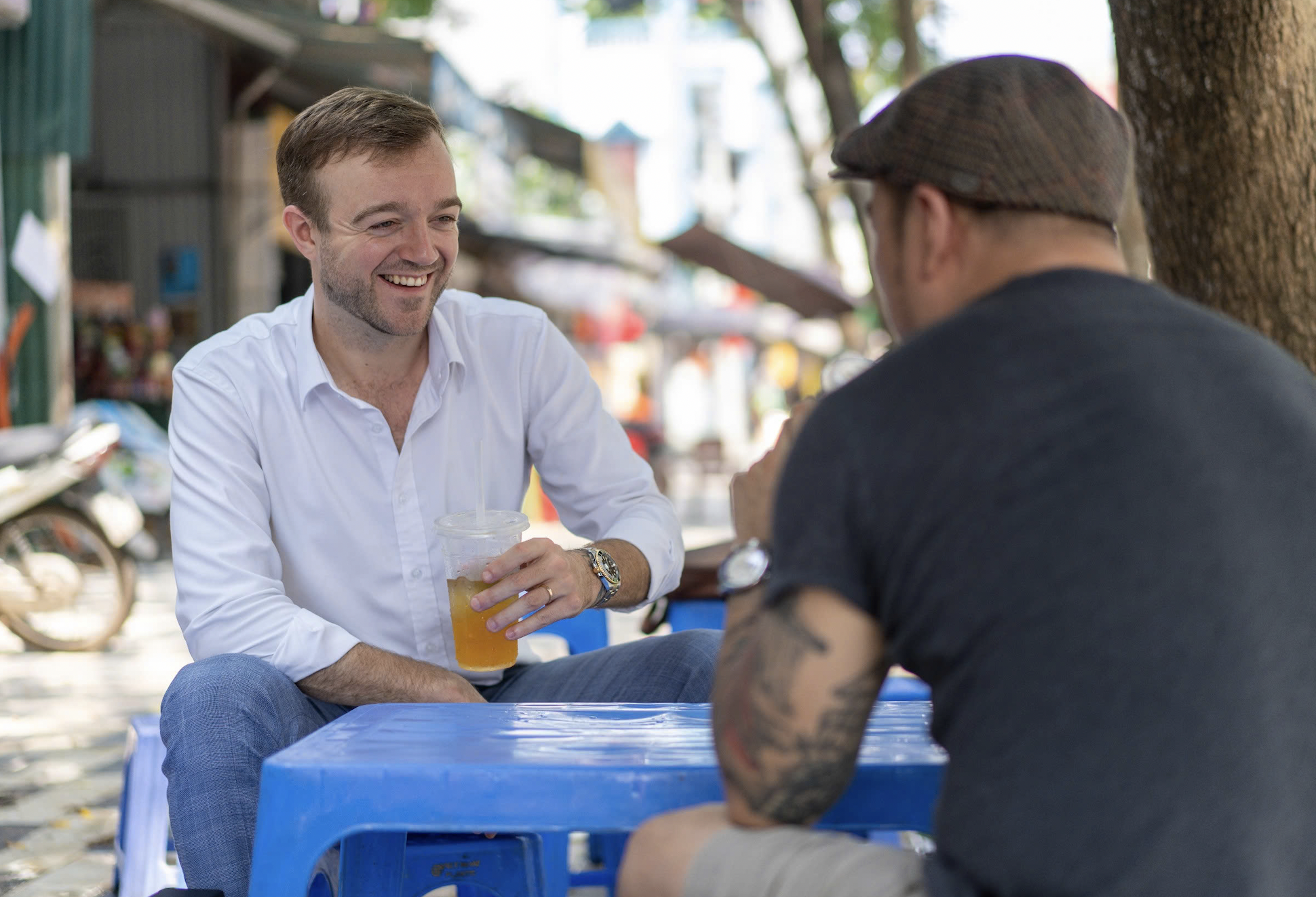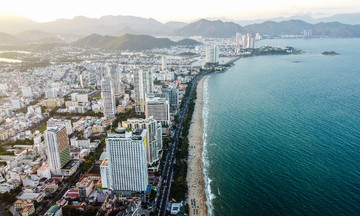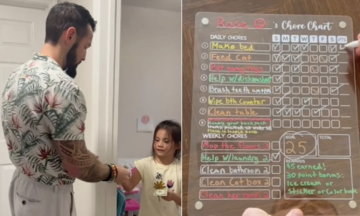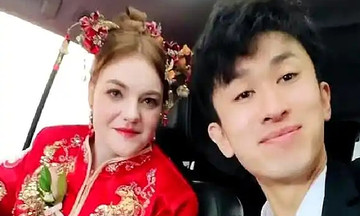"Gold is king for the Vietnamese. It's a concentrated asset, acting as insurance against all risks," James recounted about the secret he discovered in 2023, when he first came to Hanoi as a sales manager at a tech company.
As he became closer to the Vietnamese, the 34-year-old Englishman was invited to their homes. He was further surprised to see a friend with a drawer full of envelopes, each clearly labeled with its purpose, such as "Tet money," "emergency fund," "money for parents," or "refrigerator fund." He likened this to old-school budgeting, disciplined and clearly directed. "They don't use spreadsheets, but they know exactly where every penny goes," James said.
A few months later, he started dating a woman (who later became his wife) and truly understood the financial culture of the Vietnamese. "Caution in all spending is the ultimate principle," he said. Large expenses are usually carefully discussed, planned in advance, and only made when there are sufficient funds or when absolutely necessary. Borrowing is the last resort, and if it happens, it's mainly from relatives or friends. Banks are the last resort.
"Vietnamese people are very afraid of debt," James observed.
According to him, this is the biggest difference from the Western lifestyle, where debt is common. Many British people use credit cards, car loans, or buy-now-pay-later schemes to maintain a lifestyle that exceeds their income, believing they deserve everything immediately.
But the difference in money culture caused many arguments between him and his wife. His wife is cautious, while James is used to a risk-taking mindset. He likes borrowing capital, investing early, and using financial leverage to pursue opportunities. He used to think she was too rigid and lacked ambition.
Once, he wanted to invest in a startup in the UK. She only asked three questions: What if you fail? How long will it take to recoup the investment? Will you be confident enough to tell your children about this later?
After that argument, James began to pause. His wife's questions made him observe and think more. He continued to be surprised to find that many Vietnamese can buy houses and land, take care of their parents, and invest in their children, even though their incomes are not high.
"It's not how much you earn, but how much you keep that matters," James learned. Once, he was about to buy a new car but changed his mind after seeing his wife's family all riding old, durable, and still functional motorbikes. He realized that in Vietnam, no one cares what car you drive, as long as it gets you around.
In the end, the couple used the money to buy a plot of land in the suburbs of Hanoi. For James, it was a reasonable decision, unostentatious, and "very Vietnamese." He started to consider more carefully before each expense. Having to pay 10 USD for a sandwich made him compare it to a bowl of pho for only 2 USD, which was both delicious and filling.
When talking with friends, James realized that many foreigners also experience similar changes in their thinking about money, becoming more like the Vietnamese after a period of living in the country.
A report by Navigos Group shows that about 50% of foreigners experience culture shock, of which financial differences account for about 20%. The differences stem from the financial system and consumer habits. According to Statista in 2023, only 7% of Vietnamese adults have credit cards, among the lowest in the region. A World Bank survey noted that 64% of Vietnamese try to avoid borrowing even when facing financial difficulties.
 |
William Gray (in white) in Hanoi, 7/2025. Photo courtesy of the subject |
William Gray (in white) in Hanoi, 7/2025. Photo courtesy of the subject
William Gray, a financial advisor at Infinity Financial Solutions, a company specializing in financial and investment consulting for foreigners in Vietnam, said the difference in financial behavior stems from historical and cultural factors.
For Vietnamese people, family networks play an important role. Everyone has some savings, so they are willing to help relatives to avoid high interest rates if they borrow from banks. They usually spend within their means, viewing saving as a way to ensure financial security. According to William, this stems from memories of the subsidy period and scarcity, forming a psychology of risk aversion and prioritizing tangible assets like gold or real estate. They also often prioritize their children's benefits and future over preparing for their own retirement.
Having lived in Vietnam for 8 years, William Gray was once surprised to see people saving even with modest incomes. He believes this cautiousness also influences their approach to investment, even with low-risk assets.
Many foreigners gradually adjust their spending habits when living in Vietnam for a long time. "The difficulty in accessing credit forces them to live within their means, especially when they marry Vietnamese and make financial decisions together," he said.
Instead of relying on debt, they start prioritizing saving, buying a house, and keeping cash. The economic context forces Vietnamese people to save to buy a house and pay for tuition, while access to highly liquid financial instruments is difficult.
However, the fear of debt or aversion to risk can be detrimental to long-term financial planning. Cash is only suitable for immediate and urgent needs, while long-term capital should be allocated to assets with the potential to appreciate or generate income. In Vietnam, most people only know to pour money into real estate, a market that is volatile and highly speculative.
In the middle of last year, Liam Ward, 30, and his Vietnamese girlfriend in Ho Chi Minh City had a heated argument about savings when they were planning to live together. He thought savings were for travel, while his girlfriend considered it a "safety net" in case of illness, job loss, or unforeseen circumstances.
"There's a clear difference in financial thinking between the two cultures," he said. In the end, they chose to "buy gold and store it," something he considered odd in Western culture. Liam thought gold would be difficult to sell when needed, such as during illness or emergencies.
However, he realized he was wrong. Gold can be exchanged for money very easily and quickly. Especially after several price surges in the second half of 2024 and early 2025, Liam realized this was a stable and effective investment option, no less than other channels.
"It turns out this is also how many Vietnamese accumulate and increase their assets," he said.
Ngoc Ngan












